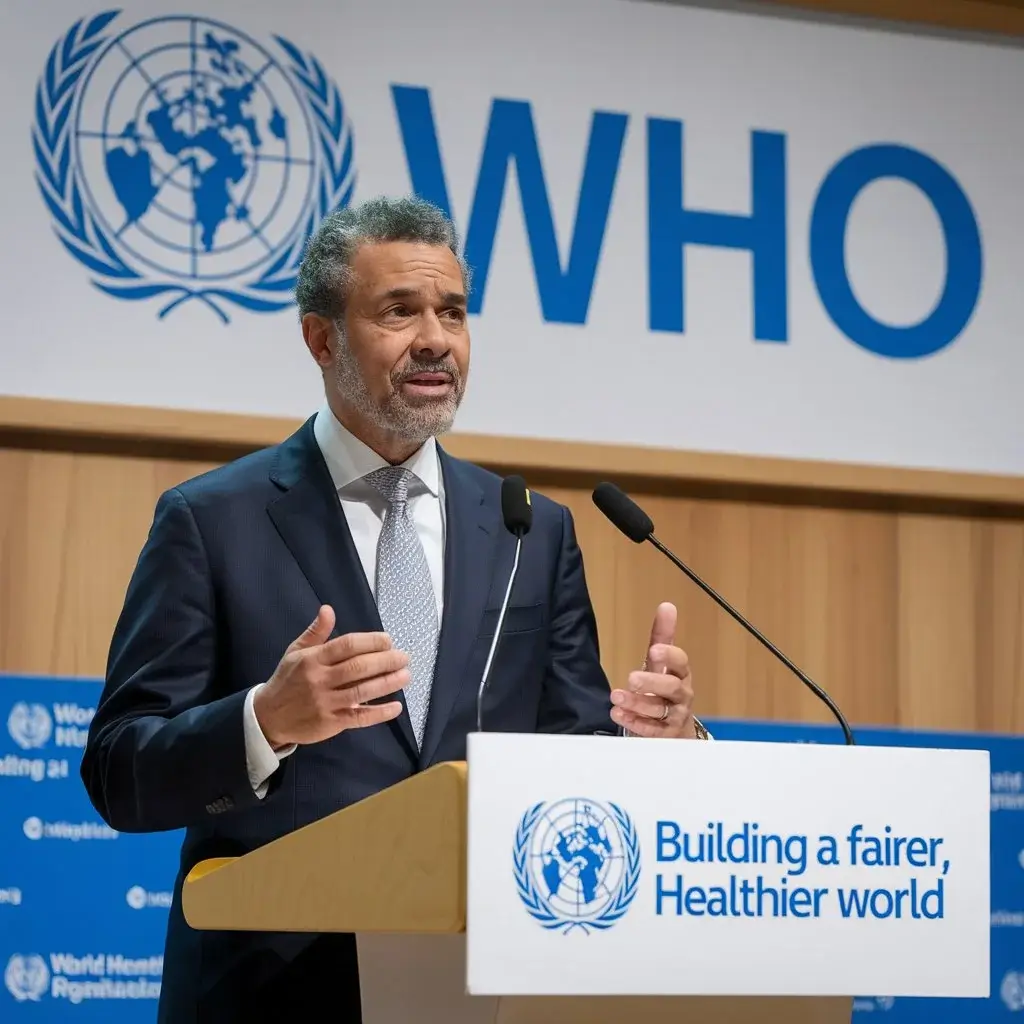Kidney transplantation is a lifesaving intervention in patients with end stage renal disease (ESRD). Kidney transplant surgery is intended to remove the patient’s failing kidneys and replace them with healthy functioning kidneys. However, this procedure also has a lot of impact on the cardiac conditions of the body as well. This impact is however felt most in those patients who are ret Transplanting a kidney for the second time. Second transplant is even more of a shock to the body and entails more difficulties and threats, more to the point, the incidence of MI is higher.
Another important issue isacute myocardial infarction rate in patients after the second renal transplantation. This paper analyzes risks and outcomes of Heart Attack Rate in patients who undergo second kidney transplant, to explain how it influences cardiac disasters. This is accompanied by mechanisms that explain the increased risk; different risks are also described and a configuration of approaches in managing these risks is also described. It is thereby imperative to have such knowledge in view to enhance the results and avoid cardiovascular mishaps among the second kidney transplant candidates.

Background:
Patterns of Cardiovascular Risk Factors Among End-stage Renal Disease Patients on the Waiting List for Kidney Transplantation
Kidney transplantation is chosen in the treatment of patients with CKD and ESRD as one of the possibilities of treatment. The transplantation of the kidney also helps in improving the life expectancy, as well as the life quality by decreasing some important factors related to cardiovascular diseases. However, this risk does not stand at a zero level. In return, the evaluated body of knowledge suggests that KTRs continue to be at a higher risk of CE.
They are much more vulnerable to having a myocardial infarction, traumatic injury or fatal injury than the general population. Still, cardiovascular risk remains an important concern even after the transplant has been successfully done. The patient requires constant monitoring and management if they are to have the best possible quality of life after treatment. These are important risks that would continue to play out and therefore understanding how to manage them would go a long way in enhancing long term results.
Chronic Kidney Disease and Cardiovascular Health:
CKD is considered as one of the potential and potent risk factors of cardiovascular diseases. CVD risk factors in patients with CKD include increased progression of atherosclerosis, increased arterial rigidity, and increased levels of inflammation as well as oxidation.
Immunosuppressive Medications:
Also there are definite need of immunosuppressive drugs so that patient does not reject the transplanted organ. The aforementioned medications that are requirements for graft survival are not harmless to cardiovascular health. For instance, steroids and calcineurin inhibitors such as tacrolimus and cyclosporine affects the blood pressure, lipid profile, and causes metabolic syndrome that are known trans-factors that lead to heart attack.
Hypertension:
This is due to the fact that hypertension is well known to affect most of the kidney transplant recipients . And the immunosuppressive drugs have some unwanted effects in provoking hypertension. Clinical studies show that hypertension increases the risk for cardiovascular incidents and in particular – heart attacks.
Diabetes Mellitus:
Another complication which adds on to cardiovascular risk is post-transplant diabetes mellitus (PTDM). It has been postulated that insulin resistance and hyperglycaemia in patients with PTDM speeds up the progression of coronary artery disease.
Dyslipidemia:
The lipid metabolism changes which are common in the patient after transplantation as a result of immunosuppressive therapy are prone to atherosclerotic events and myocardial infarctions.
The Difficulties associated with a Second Kidney Transplant
Second kidney transplant patients, that is those who may need a second transplant because of graft failure or for other reasons, therefore, present another challenge.
Previous Transplant-Related Cardiovascular Damage: Chronic kidney disease and immunosuppressive therapy used in prior transplants might be complicating the patients’ cardiovascular status. It will be worse off with a second transplant performed.
Graft Rejection and Its Consequences:
A rejected transplanted kidney may result in the re-emergence of a person’s kidney disease and cardiovascular risk factors.
Complications and Comorbidities:
Dual transplant raises the dangers of disease problems such as infections, prolonged time for graft to function, and acute rejection episodes. These complications are further likely to take a toll on cardiovascular health as well as increase chances of heart attacks.
Long-Term Effects of Immunosuppressive Therapy:
The immunosuppressive drugs taken in a second transplant can cause a breakdown of favourable effects on cardiovascular health complications since hypertension, diabetes, and dyslipidemia may significantly deteriorate over time.
Literature and Research Theories on the Heart Attack Risk following the Second Round of Kidney Transplants
Further research is continue on the cardiovascular risks with the second kidney transplants.
Cardiovascular Risk Factors and Outcomes:
In a cross-sectional study that appeared in the American Journal of Kidney Diseases the investigators demonstrated that patients, who had a second renal transplantation used to have more cardiovascular risk factors compared to first kidney transplant recipients. The study also established that the patients had a higher rate of cardiovascular incidents such as the heart attack if they received the second transplant.
Impact of Immunosuppressive Therapy:
Of the six analysed studies, three original research papers were conducted by the authors and published in Transplantation Proceedings. And our fourth study combined the data; the fifth study compared the patient groups. And the sixth study compared the patients with those receiving a primary kidney transplant only. The latter study showed that patients receiving a second kidney transplant were on a combination of immunosuppressive drugs. And had higher levels of hypertension and dyslipidemia.
Long-Term Outcomes:
Comparing patients with second kidney transplant and other patients. Higher cardiovascular mortality rate was reported in second kidney transplant patients in long-term follow up studies. This increased risk is related with the disease itself and the immunosuppressive treatment of the patients.
Comparative Studies:
In the Journal of the American Society of Nephrology published comparative study it was identified. And that those patients who had second kidney transplant. And had higher risk of myocardial infarction in comparison to those receiving first kidney transplant. The given work proposed enhanced cardiovascular monitoring and treatment as essential for the outlined population.
Understanding Ways in which Management can Lower the Risk of Heart Attack
Since the cardiovascular risk is higher in the second kidney transplants, hence it has becoming necessary to come out with a multiple factor prevention strategy. Key strategies include:
Rigorous Cardiovascular Monitoring:
Screening tests such as blood pressure measurements, lipid and glucose tests are vital component of cardiovascular checkups for risks identification and mitigation.
Optimizing Immunosuppressive Therapy:
Particularly the immunosuppressive regimens must be tailored to eliminate cardiovascular risks. This may involve choosing drugs with a connection to lesser cardiovascular risks and possibly even altering the.matcher
Lifestyle Modifications:
Taking moderate diets and consumptions, moderate exercise and cessation of smoking is useful to all the patients which reduces the risk factors of Heart Attack Rate in Patients diseases.
Pharmacological Interventions: All the drugs for hypertension, dyslipidemia and diabetes should be used optimally depending on the patient characteristics and their overall risk factors.
Education and Support:
Education and counselling of patients about cardiovascular risk factors and ways and means to do away with them are still compulsory.
Multidisciplinary Care:
More the CV risk assessment in combination with the later management with the help of other specialists, including nephrologists, cardiologists, and other related specialists, is needed to improve the patient outcomes.
Conclusion
According to data Heart Attack Rate in Patients attacks appear to be a concern to patients who undergo a second kidney transplant. There are many reasons that go to increased risk: Concomitant cardiovascular diseases, chronic illnesses and immunosuppressive therapy. Experience of problems connected with a second graft also contributes to an increase of cardiovascular risks. However, strictly implementing such measures of risk assessment significantly reduces the risk of complications only if it involves patient monitoring.
It is important to have patients participate in their cares. There is always need to learn and manage cardiovascular risks as early as possible. Managing this risk requires that treatment approaches are personalized to the patients’ needs. Therefore, prophylactic care enhances the transplant recipients’ long-term success rate. Consequently, it is now possible to guarantee comprehensive. And management can truly decrease the occurrence of the medical emergencies, such as a heart attack.






